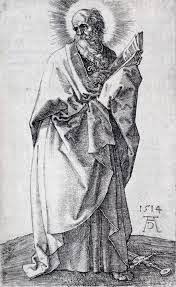 |
| Fallen Blossoms, controlled explosion at the Philadelphia Museum of Art, Cai Guo-Qiang |
Luke 12:49-53
“I came to send fire on the earth, and how I wish it were already kindled! But I have a baptism to be baptized with, and how distressed I am till it is accomplished! Do you suppose that I came to give peace on earth? I tell you, not at all, but rather division. For from now on five in one house will be divided: three against two, and two against three. Father will be divided against son and son against father, mother against daughter and daughter against mother, mother-in-law against her daughter-in-law and daughter-in-law against her mother-in-law.”
Flash! Outside of
shiny things, humans seem to have an unstoppable interest in
fire. Things that burn and explode. Things that go "
Zap!" Things that go "
Boom!"
Cai Guo-Qiang is a Contemporary Artist from China that specializes in such things. He has made a successful career of using the ancient Chinese invention of gunpowder to create art. However his work isn't just about the bright lights and
loud noises that come with explosions but rather about what fire leaves behind. Fire is only the medium/tool that he uses to create drawings. Often we focus on fire as an agent of destruction but this dangerous medium can also create. It is on that note that we look at today's verse in Luke 12. Christ speaks of strange things: fire baptism and division. In the center of it all is a startling statement that he has not come to bring peace! Could it be that the Prince of Peace is really the
Lord of War? Is Jesus denying all of that "turn the other cheek", and "pray for your enemies" stuff that he was saying earlier? No, remember that we must always understand scripture in the context of other scripture...and the testimony of Scripture as a whole. So it appears that Jesus was using
hyperbole, however, it was used to a specific end. He indeed is the Prince of Peace but his fire would indeed usher in destruction in order to create beauty.
 |
| Cai Guo-Qiang, Gunpowder |
Fire is a dual agent of destruction and creation. For some reason we are the most fascinated with destructive qualities. Yet even though it goes unappreciated by most fire leaves a residue behind. It is more than the ashes of destruction.
Charcoal that we use for cooking, gunpowder and drawing is made from the residue left after fire. Cai Guo-Qiang recognized that potential in that duality of fire. Many people struggle with the duality of God: He is both a judge and a savior. Yet it is destruction of His judgment that makes room for the creative mercy of salvation. When the Lord saves us from our sin through Christ, it is as a judgment against the system of Sin. When Christ rose from the dead and instituted his body as the new temple of God it was itself a judgment against the condemnation of the Law. If there is no destruction then there is no room for creation: Death allows for new life. This brings us to another good property of fire: it is a purifying agent. In iron working fire is used to form the metal in its raw and unsophisticated form into something stronger, utilitarian and aesthetically pleasing. It is not a "diamond in the rough" but it is the "iron in the rock." Fire is used to burn off the impurities. That is what makes gold pure and what gains Believers long suffering. While going through his own God given test of suffering Job described it as "
When He has tested me, I shall come forth as gold." It appears that this is the type of fire that Jesus was about to unleash. It would prove to be tumultuous, but only a temporary tumult that would forge something strong and beautiful. God's most beautiful golden crosses are forged in flames. God's most ornate sketches are drawn with charcoal.
Baptism is a spiritual purifying agent. That is generally understood. We symbolically wash away our old sinful nature in submission to Christ's commands. But I suspect that when Jesus speaks of his own impending baptism that distresses him that he isn't referring to the traditional water baptism. Christ is referring to a "
baptism by fire." When I say baptism by fire I am not making an allusion to the baptism of the Holy Spirit...I am referring to baptism through sacrifice. It is a baptism that was reserved specifically for Jesus. Suffering as a spiritual purifying agent, yet it is not one that needs to be willingly sought out. Don't go looking for Trouble. If needs be, Trouble will find you... like
Chuck Norris. Even though Christ's baptism of fire on the cross would be prepared for only him, it would still have universal implications. One of these immediate implications would be division.
 |
| Cai Guo-Qiang |
Just as Fire and Baptism are purifying agents, they are also divisive by nature. In both cases one thing is divided into two parts. Fire divides by separating the parts that are consumed by the flames from the residue which remains. Baptism shows that we have been separated from our sins. As Christ testified his baptism of fire would divide families. Belief in what his crucifixion spiritually achieved caused division amongst brothers. Specifically it caused division within Abraham's children. Belief in Jesus as the Messiah would form two separate factions in Judaism that would form the future of the Abrahamic faith. In the days leading up to his crucifixion, Christ preached about how the temple would be destroyed, foretelling the
Romans destruction of the Temple some 40 years later. He also said that if they destroyed "this temple" (meaning his body) that he would raise it in three days. When Christ was executed it is reported in the gospels that the veil in the temple (that showed the area where the spirit of God was thought to dwell) was torn. Christians saw this as a sign that the spirit of God no longer dwelled in the temple at Jerusalem. Christ's cross was not only an agent of salvation but a sign of judgment against sacrificial Judaism. When the actual destruction of the temple occurred and the Jews were eventually banned from Jerusalem by the Romans, it spelled an end to sacrificial Judaism as a whole. Having no place of sacrifice or priesthood to perform it, Judaism became a "religion of the book." The focus of worship became how to live out the commands of God in everyday life: how we express personal holiness and how we treat others. Their are a few Jewish factions that were around then which remain today (like the
Karaites, who derive from the remnants of the Sadducees, and the
Samaritans) but for the most part the last two millennia have been dominated by the disciples of the Pharisees (who created Rabbinical Judaism) and the disciples of Christ (who created Christianity). I have no desire to simplify or antagonize either group: both Rabbinic Judaism and Christianity have several different sects, denominations and subcultural groups with different beliefs. Though there is hope in the recent developments in Messianic Judaism (Jews who believe in Jesus as Christ and worship in a rabbinical structure), the majority of the historic interactions between the Church and the Synagogue have been filled with hurt and animosity. Most of these have been due to the sins and bigotry of Christians. Even though the cross may be an offence to some, we need not be intentionally offensive in our treatment of others.
"but we preach Christ crucified, to the Jews a stumbling block and to the Greeks foolishness, but to those who are called, both Jews and Greeks, Christ the power of God and the wisdom of God."
- 1 Corinthians 1:23-24, St. Paul
There is one last quality to the Message of the Cross that burns. Yet it is less like fire and more like indigestion. Any of you who have spent any time in unbelief are familiar with that feeling. Christianity is hard to swallow. It is hard to mentally digest the whole story of Christ's redemption. To St. Paul's Jewish brethren the message of Christ's cross presented a stumbling block: the idea that salvation was not through ethnic identity as a child of Abraham and one of God's chosen people, but rather through faith in one specific rabbi, Jesus, as the Son of God. To the Greek philosophers that St. Paul encountered abroad the message of Christ's cross was a presentation of foolishness: the idea that amongst all of the religions and people of the world, God would chose the humble Israelites to send his Son through as the only means of salvation. This debate still exists today and is called
The Scandal of Particularity. It is a pretty strong argument. I live in a pluralistic culture and I generally believe in compromise: whether it be political, at my job or what have you, usually a suitable answer can be found by cooperating and merging ideas and paths. Yet there is one area where I do not practice or believe in this principal: love. When I married my beautiful wife I chose to love her and forsake all others. Does this mean that I hate everyone else in the world? No, I maintain friendship with many people but the truest and most dedicated love is for my wife. Hopefully we will produce children one day and we can share our intimate love within even more people. People that have been born of our love. God often described his relationship with Israel as a spousal relationship. If the Israelites engaged in idolatry he likened it to adultery. Likewise, Scripture refers to the Church as the Bride of Christ. Truth is singular in its expression when that expression is Love. Truth bears children of faith when that expression is Love. Truth burns like a fire when that expression is Love.








.+by+Norman+Rockwell.jpg)


.jpg)













+3.jpg)
.jpg)


%E2%80%9D.jpg)



















